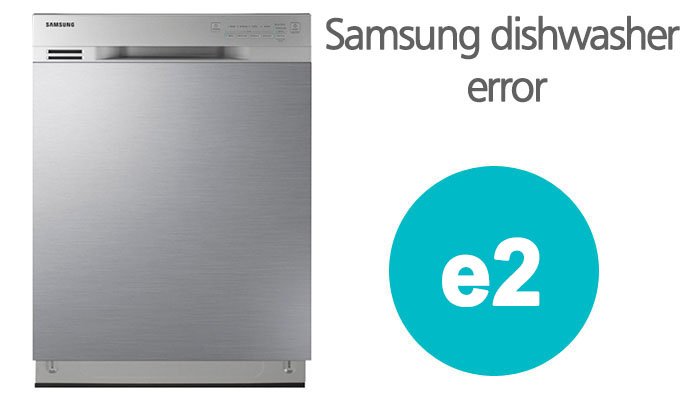
Dishwashers are the unsung heroes of modern kitchens, quietly and efficiently saving us hours of manual labor each week. Among the array of brands available in the market, Samsung has solidified its position as a leading provider of high-quality, reliable appliances. But like any other tech-based appliance, Samsung dishwashers aren’t immune to occasional glitches, like the infamous E2 error code.
The E2 error code typically indicates a problem with the water supply or the machine’s ability to drain water efficiently. This is a general alert that something is disrupting the optimal operation of your dishwasher. Identifying and addressing this issue is crucial to getting your appliance back in top shape.
Firstly, let’s understand the code. The E2 error is specific to Samsung dishwashers and represents a drainage or water supply issue. It usually pops up when the appliance fails to drain the dirty water or cannot fill up with clean water for the next wash cycle. While it might seem like a daunting task to decipher these error codes, knowing their meaning can empower you to handle minor problems and avoid unnecessary expenses.
Start the troubleshooting process by checking the basics. Make sure the dishwasher is properly connected to the water supply and the drain hose isn’t kinked or blocked. If these aspects are functioning correctly, you can proceed to check the filters and the drain pump.
Filters in a dishwasher are essential for catching food particles and preventing them from clogging the machine. If the filters become too clogged, they may cause the E2 error. Therefore, periodic cleaning and maintenance are necessary. Cleaning the filters is straightforward; most Samsung dishwasher models have easily accessible filters that can be unscrewed, cleaned with warm soapy water, and reinstalled.
If the filters are clean and the error persists, it’s time to examine the drain pump. The drain pump is the heart of the dishwasher’s drainage system. If it malfunctions, the dishwasher cannot expel dirty water, resulting in the E2 error. The pump can be checked for blockages or, in some cases, might need replacement.
Another factor to consider is the dishwasher’s water level sensor or float switch. This component ensures the dishwasher doesn’t overfill by sensing the water level in the machine. If the float switch is stuck or the sensor malfunctions, the machine could misinterpret these signals and throw an E2 error. Cleaning or replacing the float switch, or addressing any issues with the sensor, can rectify this.
In cases where these troubleshooting steps don’t solve the issue, it may point to a more complex problem like a faulty control board. In such situations, it’s advisable to call in a professional technician. They have the expertise to safely and correctly diagnose and address any further complications.
Some users also report that disconnecting the dishwasher from the power source for a few minutes, then reconnecting it can reset the appliance’s system and potentially resolve the error code. This process is commonly known as a “power cycle”. It’s a simple yet effective first step to try before diving into more detailed troubleshooting.
To summarize, an E2 error on a Samsung dishwasher typically indicates an issue with the water supply or drainage. The problem can often be resolved by checking and rectifying issues with the water supply, drain hose, filters, drain pump, or water level sensor. However, in case these troubleshooting steps don’t work, it’s recommended to seek assistance from a professional technician.
Prevention is better than cure, and this holds true for your Samsung dishwasher as well. Regular maintenance, cleaning of filters, and monitoring of the water supply can prevent issues like the E2 error from occurring. By understanding your appliance and keeping an eye on its operation, you can ensure its longevity and continue enjoying the convenience it provides in your kitchen.
